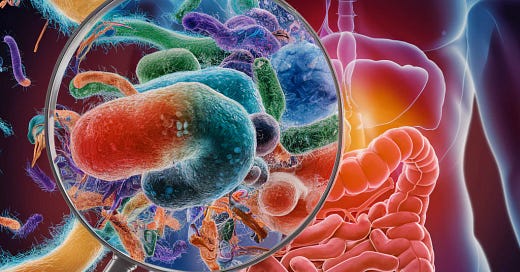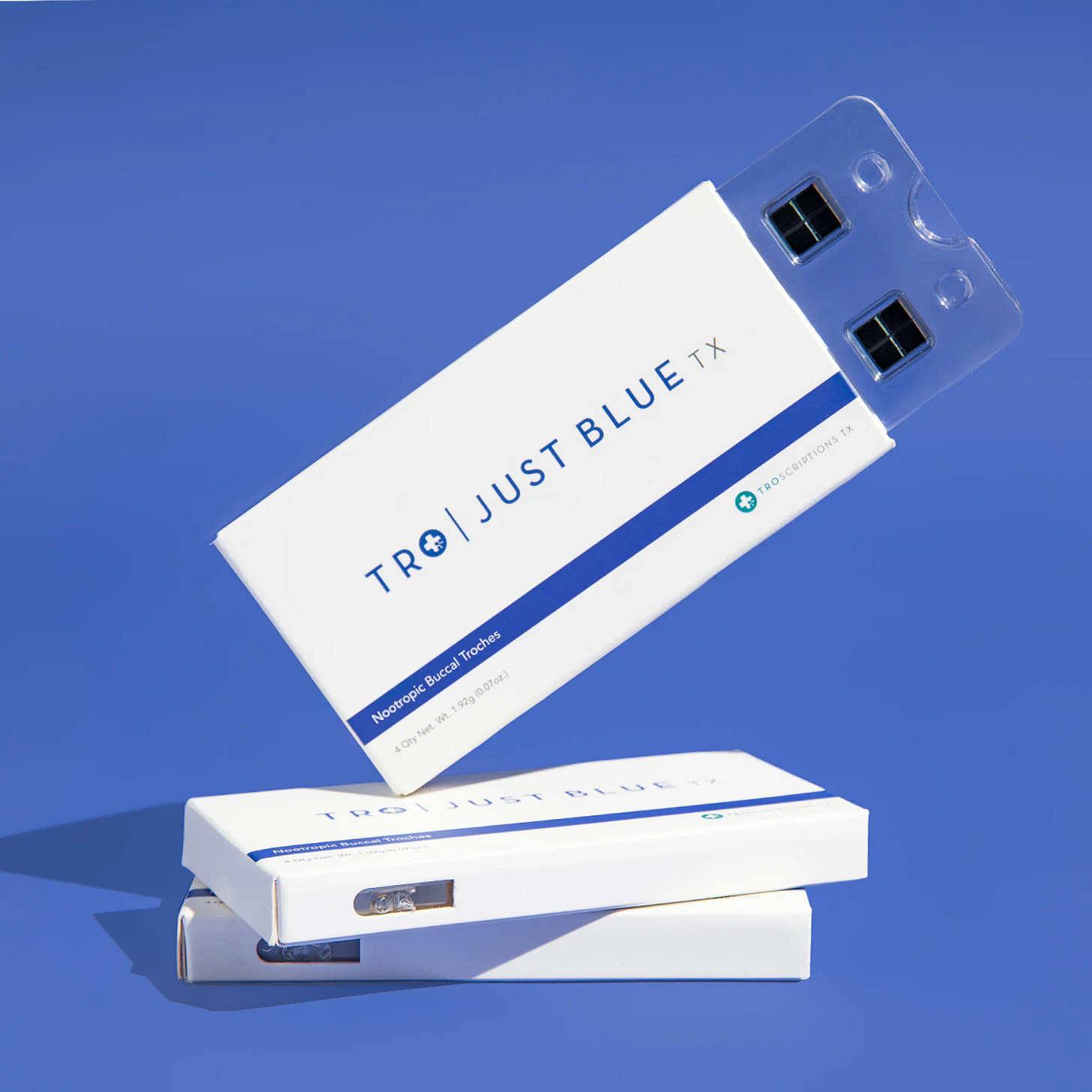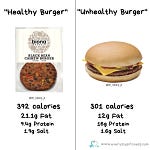Neuro Athletics is a twice-weekly newsletter designed specifically for high-performing men and women who want science-backed strategies to optimize brain health, performance, and longevity. Subscribers include executives, coaches, professional women, health-conscious mothers, and women dedicated to peak cognitive and physical performance. If you're not already subscribed, join 69,000+ people who receive actionable insights directly in their inbox each week.
Story at a Glance:
Most dietary advice is outdated. The low-fat, calorie-counting era ignored the microbiome—an organ critical to metabolism, immunity, and brain health.
Ultra-processed foods disrupt gut balance. Even if labeled “low-fat” or “healthy,” these foods starve beneficial microbes and drive inflammation.
Six foods can reboot your gut health. Fermented foods, polyphenols, legumes, whole grains, nuts, and cruciferous vegetables build microbial diversity and improve metabolic resilience.
Neuro Athletes,
We were lied to. For decades, the food industry has manipulated public health advice under the guise of low-fat, low-calorie dogma. These weren't scientific breakthroughs; they were billion-dollar business decisions. Tim Spector, a leading researcher on the gut microbiome, argues convincingly that our obsession with calorie counting and fat avoidance has derailed our understanding of real nutrition.
At the core of this nutritional disaster is the gut. Our gut microbiome—the trillions of microbes living in our intestines—isn't just some digestive sidekick. It's a full-blown metabolic organ that influences everything from inflammation to mood, immune regulation, and even risk for diseases like Alzheimer's and type 2 diabetes.
So, if you're eating "clean" but still dealing with fatigue, brain fog, or poor digestion, it's not your willpower. It's your microbes. And they are starving.
The Methylene Blue I use.
I've been personally experimenting with Troscriptions' Methylene Blue, and it has quickly become a game-changer for my cognitive performance routine, dramatically enhancing my mental clarity, decision-making capacity, and stamina in demanding professional settings.
Methylene Blue is rapidly gaining attention for its scientifically-backed ability to optimize brain function, improve cognitive performance, and protect neurons from oxidative stress, making it a must-have for anyone committed to cognitive longevity.
Ready to upgrade your cognitive health?
Use code NEURO to get 10% OFF your first order and elevate your cognitive performance today.
Why Most "Healthy" Diets Miss the Mark
Let me be blunt: most mainstream diets are still rooted in 1980s nutrition science. We categorize food based on macronutrients (fat, carbs, protein), but what actually matters is how your gut processes those foods. That depends on the quality, complexity, and diversity of the chemical compounds in your diet.
Ultra-processed foods (UPFs), regardless of their fat or sugar content, disrupt the microbiome. And yet, UPFs make up 60% of the average American diet.
What's worse?
These foods don't trigger satiety signals properly, leading to overeating and metabolic chaos. They also condition your taste buds to crave extreme sweetness, dampening your ability to enjoy natural whole foods.
Reframing Gut Health: What the Science Really Says
Microbiome diversity equals resilience.
The more species you host, the more metabolically resilient your gut is.
Your microbes shape your response to food.
Two people can eat the same meal and have wildly different blood sugar, insulin, and inflammatory responses.
Ultra-processed food is the real enemy.
It isn't about fat vs. carbs. It's about fake vs. real.
The Gut-Friendly Six: Foods That Feed Your Microbiome
1. Fermented Foods
Examples: Yogurt, kefir, sauerkraut, kimchi, miso.
These foods deliver live microbes that can enhance gut diversity and reduce inflammation. Aim for 1–2 servings per day. Homemade or unpasteurized varieties are best.
2. Polyphenol-Rich Plants
Examples: Berries, olive oil, dark chocolate, coffee, red wine (in moderation).
Polyphenols aren't just antioxidants—they're prebiotics. Your microbes feast on these and produce postbiotic metabolites that enhance immunity and brain health.
3. Legumes and Pulses
Examples: Lentils, chickpeas, black beans.
Rich in resistant starch and fiber, they promote the growth of butyrate-producing bacteria, which protect the gut lining and improve insulin sensitivity.
4. Nuts and Seeds
Examples: Walnuts, flaxseeds, chia seeds, almonds.
Contain fiber, polyphenols, and healthy fats. Just a small handful daily has been shown to improve gut microbial composition.
5. Alliums and Cruciferous Vegetables
Examples: Garlic, onions, leeks, broccoli, cauliflower.
These contain sulfur compounds and prebiotic fibers that increase microbial diversity and lower gut permeability (aka "leaky gut").
6. Whole Grains (Intact, Not Pulverized)
Examples: Steel-cut oats, farro, barley, quinoa.
Slowly fermented by gut microbes, whole grains offer a steady release of short-chain fatty acids that reduce systemic inflammation.
Actionable Advice: Build a Microbiome-Supporting Week
Aim for 30+ plant species per week. This includes herbs, spices, fruits, vegetables, nuts, seeds, and legumes.
Minimize meal frequency. The microbiome benefits from periods of fasting. Avoid constant snacking.
Ditch the labels. Low-fat, sugar-free snacks are often worse than real food. If your great-grandmother wouldn’t recognize it as food, don’t eat it.
No two guts are the same. Even identical twins don’t share the same microbiome. So don’t follow one-size-fits-all diets. Instead, cultivate awareness, track how foods make you feel, and feed your gut like the vital organ it is.
Your gut isn't just what you digest with. It's what you think with, feel with, and age with.
Further Listening:
Want to dive deeper into how your microbiome affects your brain and long-term health? Check out my latest podcast with gut expert Professor Tim Spector.















Share this post